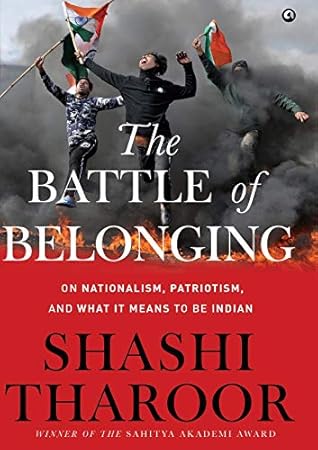More on this book
Kindle Notes & Highlights
Read between
December 27, 2020 - January 23, 2021
The idea of the Nation is one of the most powerful anaesthetics that man has invented. Under the influence of its fumes the whole people can carry out its systematic programme of the most virulent self-seeking without being in the least aware of its moral perversion.
The French leader Charles de Gaulle said memorably: ‘Patriotism is when love of your country comes first; nationalism, when hate for people other than your own comes first.’
‘nationalism represents a transmutation of the megalothymia
moral failures of the past are, in fact, the triumphs we once thought they were.’137
‘Democracy will not work,’ he declared gloomily, ‘for the simple reason we have got a social structure which is totally incompatible with parliamentary democracy.’
‘My countrymen will gain truly their India by fighting against that education which teaches them that a country is greater than the ideals of humanity.’
Silence is also a weapon of soft-signalling: when he refuses to condemn instances of communal violence, he implicitly condones it.351 This is not behaviour worthy of a true nationalist, who ought to be resolute against anything that would divide his nation and so weaken it.
I believe that, like a thali, we are a collection of different items in different bowls; since we are in different bowls, the dishes don’t necessarily flow into each other, but we belong together
on the same platter and combine on your palate to give you a satisfying repast. Mohan Bhagwat’s construct is not that of my thali. It is, instead, a khichdi theory of nationalism: we are one dish, with many ingredients all mixed up and cooked together. Yes, individual pieces might stand out in the mash, a carrot here, a potato there, but they are nothing other than parts of the meal. Thus, for him, all true Indians are Hindus; there might be a ‘Muslim Hindu’ here and a ‘Christian Hindu’ there, but they must acknowledge that they are part of the mixed, saffron-hued khichdi and have no identity
...more
‘keep the population on a drip feed of frenzied bigotry’.428
While I recognize the need for correcting regional imbalances, where is the reward for development?’
A paean, I said—not an elegy, and certainly not a dirge.


